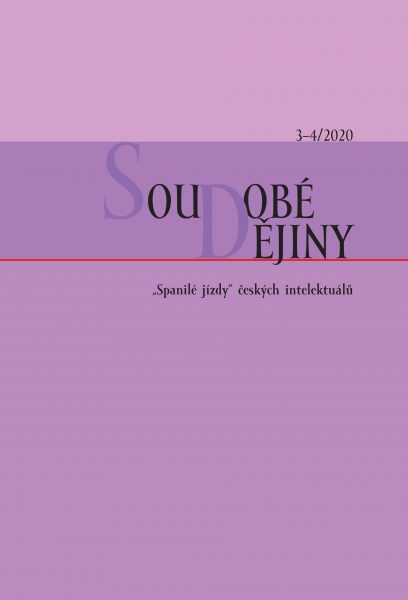Lidským prezidentem v nelidské době
A human president in inhuman times
Author(s): Detlef BrandesSubject(s): History, Political history, WW II and following years (1940 - 1949), Fascism, Nazism and WW II, Book-Review
Published by: AV ČR - Akademie věd České republiky - Ústav pro soudobé dějiny
Keywords: Emil Hácha;Czechoslovakia;Protectorate of Bohemia and Moravia;Nazi occupation;collaboration
Summary/Abstract: The reviewer recaps the most important moments in the career of Emil Hácha. Born in 1872 in the small South Bohemian town of Trhové Sviny, he studied and graduated in law, and became a deputy of the Bohemian Diet. While in Vienna during the Great War, he started his career at the Supreme Administrative Court; when Czechoslovakia became independent, he joined the same court in Prague, advancing to the position of the chairman of its senate in 1925. His leaning toward England is proved by his professional treatises, but also literary translations from English. He had never wanted to be a politician, but after the Munich Agreement and the resignation of President Edvard Beneš (1884–1978) he let himself to be talked into succeeding him. He perceived his decision as a sacrifice in the national interest; on March 15, 1939, acting under Hitler’s pressure, he signed the declaration on the formation of the Protectorate of Bohemia and Moravia in Berlin. The reviewer emphasizes that Czech historian Vít Machálek approached his extensive, impressive and fact-rich biography titled "The president of humanity: The life story of Emil Hácha" (Prague: Academia, 2020) with a great deal of empathy toward Hácha, accentuating his anchoring in Christian faith, conservative values and personal humanity. He goes through difficult dilemmas which Hácha was exposed to as the president of a puppet state in his dealings with the occupation power, and his repeated thoughts about resignation. The reviewer agrees with the author that Hácha, his declining physical and intellectual capabilities notwithstanding, did not stop striving to achieve a release of imprisoned Czechs. In his opinion, the author has submitted convincing evidence to the effect that the restored state power often employed an insensitive and unjust approach toward Hácha and other politicians accused of collaboration after the liberation. Hácha himself was arrested and died in a pathetic condition in a prison hospital in June 1945.
Journal: Soudobé Dějiny
- Issue Year: XXVII/2020
- Issue No: 3-4
- Page Range: 689-694
- Page Count: 6
- Language: Czech

